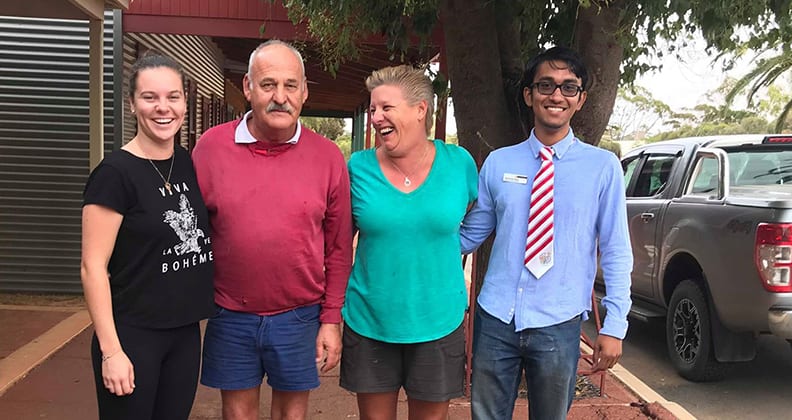
In March 2023, a group of 160 medical students from Curtin Medical School and the University of Notre Dame embarked on a journey to Western Australia’s Wheatbelt region. This rural immersion program aimed to provide these future doctors with firsthand experience of the unique challenges and rewards of rural healthcare. Among them was Tess Corbett, a second-year Bachelor of Medicine, Bachelor of Surgery student at Curtin, who found the experience both inspiring and eye-opening.
The Wheatbelt Medical Student Immersion Program (WBMSIP) offers students an opportunity to engage in ‘hands-on’ learning experiences while living with host families and participating in local activities. This initiative aligns with Curtin Medical School’s vision of producing graduates equipped to work in areas of unmet need, particularly in rural and remote locations.
Experiencing Life in Westonia
Tess was placed in Westonia, a small town about 300 kilometers east of Perth, known for its vast open spaces and vibrant wildflowers. With a population of around 300, the town provided a stark contrast to the urban environments many students were accustomed to.
“I traveled to Westonia with one other Curtin student and four Notre Dame postgraduate medical students. My experience in Westonia was overwhelmingly positive; I was able to meet so many wonderful people and see so many aspects of rural life that were unlike anything else I have experienced before,” Tess shared.
Living with a billet family, Tess found herself deeply integrated into the community. “We became very attached to our ‘parents’ and still regularly contact them,” she noted, highlighting the personal connections formed during the program.
Challenges of Rural Healthcare
According to the Australian Medical Association’s 2016 report, Australians in rural and remote areas face significant disadvantages in accessing healthcare. These challenges result in lower life expectancy and poorer health outcomes compared to urban populations.
“Death rates in regional, rural, and remote areas are higher than in major cities, and the rates increase in line with degrees of remoteness.” — AMA Plan for better health care for regional rural and remote Australia
Tess experienced this ‘rural disadvantage’ firsthand. Raised in Sydney but familiar with rural New South Wales, she was surprised by the healthcare disparities between urban centers and rural Western Australia.
“The disparity in access to health services between Perth and Westonia was far larger than I had anticipated,” Tess remarked. Her visit to Merredin, where she observed the limited healthcare infrastructure, underscored the challenges faced by rural communities.
The Role of FIFO GPs
Many rural towns, including Westonia, rely on fly in/fly out (FIFO) healthcare workers. Tess’s experience with Dr. Olga Ward, a FIFO GP, provided valuable insights into the realities of rural medical practice.
“Spending a day with Dr. Ward was incredible; she made a real effort to show us a variety of things she gets to do as the FIFO GP in Westonia,” Tess said. This experience highlighted the need for rural doctors to possess a broad skill set and adaptability.
“The lack of funding to the doctor meant she had to be incredibly resourceful,” Tess observed, emphasizing the challenges and rewards of rural healthcare.
A Future in Rural Medicine
For Tess, the WBMSIP solidified her passion for medicine and inspired her to consider a career in rural healthcare. “For as long as I can remember, a career in medicine has been a goal of mine,” she said, reflecting on her motivation to make a difference in people’s lives.
The program, a collaboration between Curtin Medical School, Rural Health West, the WA Primary Health Alliance, and other local entities, aims to inspire more students to pursue careers in rural and remote medicine.
As Tess continues her medical education, her experience in Westonia serves as a powerful reminder of the impact dedicated healthcare professionals can have in underserved communities. Her journey underscores the importance of programs like WBMSIP in addressing healthcare disparities and fostering a new generation of compassionate, skilled doctors.







